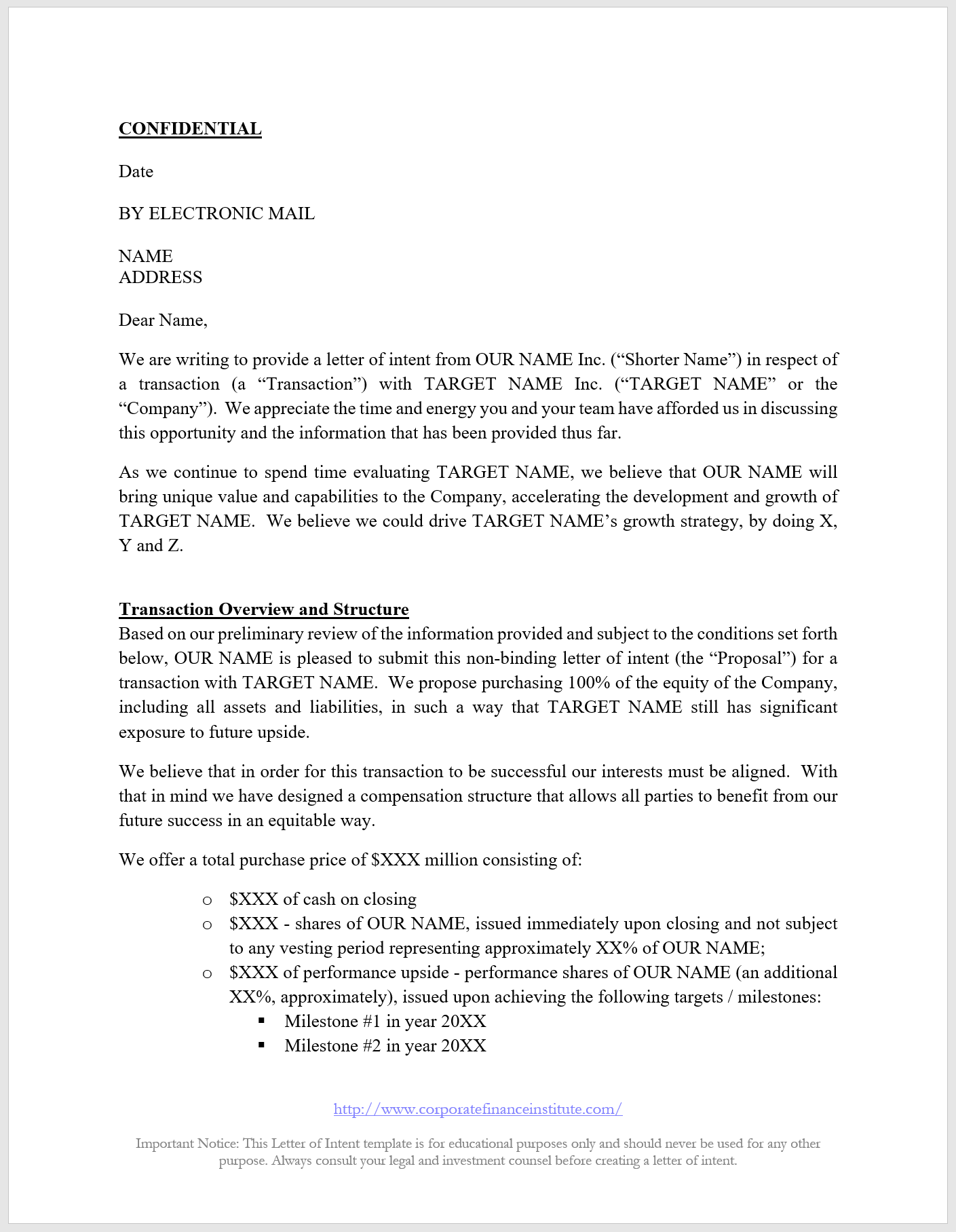What is a Letter of Intent (LOI)?
Think of an LOI as a warm-up before the big game. It’s a non-binding agreement that shows your serious interest in a deal or project. It’s like saying, “Hey, I’m interested in this, and I’m thinking about taking it further.”
Key Elements of a Letter of Intent

Image Source: corporatefinanceinstitute.com
1. Parties Involved: Clearly state who’s involved in the potential deal.
2. Purpose of the Agreement: Explain what you’re trying to achieve with this LOI.
3. Key Terms and Conditions: Briefly outline the main points of the agreement.
4. Next Steps: Describe what will happen after you sign the LOI.
Example Letter of Intent
Dear [Recipient’s Name],
I am writing to express my keen interest in [project/deal]. I have been following [company/organization] for some time and am impressed by your work in [relevant area].
I propose that we enter into a [type of agreement] to [outline the goals of the agreement]. The key terms and conditions of this agreement would include [briefly list key points].
I would like to schedule a meeting to discuss this proposal further and explore the possibility of moving forward.
Thank you for your time and consideration.
Sincerely,
[Your Name]
[Your Title]
[Your Contact Information]
Conclusion
A well-crafted LOI can be a valuable tool in your business dealings. By clearly outlining your intentions and expectations, you can increase your chances of securing the deals you want. Remember, while an LOI is not legally binding, it can serve as a solid foundation for future negotiations.
FAQs
1. Is a Letter of Intent legally binding? No, an LOI is generally not legally binding. It’s more of a preliminary agreement that indicates mutual interest.
2. How long should a Letter of Intent be? The length of an LOI can vary, but it’s generally best to keep it concise and focused. Aim for a length of around 1-2 pages.
3. What should I include in the “Next Steps” section of my LOI? In the “Next Steps” section, you should outline the specific actions you and the other party will take to move forward with the agreement. This might include scheduling a meeting, conducting due diligence, or negotiating a more formal contract.
4. Can I use a template for my Letter of Intent? Yes, using a template can help you structure your LOI and ensure that you include all the necessary elements. However, it’s important to customize the template to fit your specific needs and the situation at hand.
5. Should I consult with an attorney before signing a Letter of Intent? While not always necessary, it’s often advisable to consult with an attorney before signing a Letter of Intent, especially if the deal involves significant amounts of money or complex legal issues.
Letter Of Intent Example








